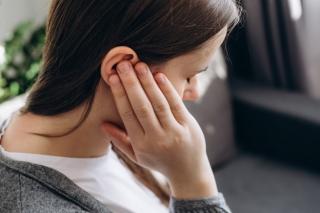Why Do I Have Hearing Loss in One Ear?

4 min read
Elite Hearing Centers of America Explains Unilateral Hearing Loss
At hearing care centers in FL, GA, WI, NC, and SC, we treat patients experiencing hearing loss in one or both ears. While bilateral hearing loss is common and affects both ears, some individuals may experience unilateral hearing loss, which only occurs in one ear. This type of condition can be mild to severe, happen at any age, and occur gradually or suddenly. In any case, it can be alarming to the patient. Our hearing care providers take time to explore the causes, symptoms, and treatments of unilateral hearing loss and offer some insights for individuals with this condition. If you have any type of hearing impairment, contact us to schedule a free hearing test.What Is Unilateral Hearing Loss?
Unilateral hearing loss is characterized as only affecting one ear while the other ear has normal hearing. Sudden loss of hearing in one ear and conditions that develop slowly over time affects about one to six percent of the population and can range from mild to severe. It can be a problem for individuals of any age, from infants born with the condition to aging adults.Is Unilateral Hearing Loss the Same Thing as Conductive Hearing Loss?
These terms don't mean the same thing and refer to different diagnoses. Conductive hearing loss is caused by a blockage that keeps sound from reaching the inner ear. Examples are earwax buildup or an infection. Conductive hearing loss is common in just one ear. However, sensorineural unilateral hearing loss is widespread and is caused by damaged cochlea or auditory nerve in the inner ear. Both conductive and sensorineural loss can happen in one or both ears. Unilateral loss can be either kind but is confined to one side.What Is Single-Sided Deafness?
Single-sided deafness is a type of unilateral hearing loss where the condition is so severe no sound can be heard in the ear at all. In these cases, a hearing aid may or may not provide any hearing help.Anyone Can Have Unilateral Hearing Loss
Unilateral hearing loss can affect anyone regardless of age. It can be caused by various factors such as genetics, infections, noise exposure, head trauma, or other health conditions. Babies can also be born with unilateral hearing loss and may require early hearing testing and intervention to prevent speech and language delays.Symptoms of Unilateral Hearing Loss
The symptoms of unilateral hearing loss vary depending on the severity of the impairment. Individuals with mild unilateral hearing loss might not notice any significant difficulties, but as it progresses, the symptoms will become more noticeable, and the person may struggle to communicate effectively in quiet and noisy environments. Some common symptoms of unilateral hearing loss include:- Difficulty understanding speech
- Asking others to repeat themselves
- Tinnitus or ringing in one ear
- Feeling off-balance or dizzy
- Irritability and fatigue from trying to hear sounds throughout the day
There Is No Single Cause of Unilateral Hearing Loss
Gradual or sudden hearing loss in one ear can happen for various reasons related to medical, physical, and environmental causes. Some of the most common include:- Infections
- Noise exposure
- Head trauma
- Genetics
- Ototoxic medications
- Autoimmune disorders
Diagnosis for Unilateral Hearing Loss
If you or a family member has hearing loss in one ear, a comprehensive evaluation by a hearing care provider should be scheduled. Discussing symptoms, the patient's medical history, recent exposure to loud noises, and medications taken will help diagnose the issue. A series of tests will also be conducted to determine the type and extent of hearing loss. These may include:- Pure Tone Audiometry - This test measures an individual's ability to hear sounds at different frequencies and volumes.
- Speech Audiometry - The person's ability to hear and understand ordinary conversation at different volumes is assessed in this test.
- Tympanometry - This procedure analyzes the middle ear condition and eardrum health by creating variations of air pressure in the canal.
- Otoacoustic Emissions (OAEs) and Auditory Brainstem Response (ABR) Tests - These tests are especially useful in diagnosing unilateral hearing loss in infants and young children.
